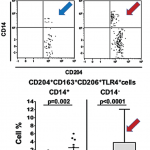Medical students and residents are choosing careers in rheumatology, thanks in part to the annual Choose Rheumatology Experience hosted by the Rheumatology Research Foundation during the ACR/ARP Annual Meeting. The Choose Rheumatology Experience is a special half-day program designed to help future physicians and rheumatology professionals navigate the Annual Meeting. Cultivating interest in rheumatology is…





